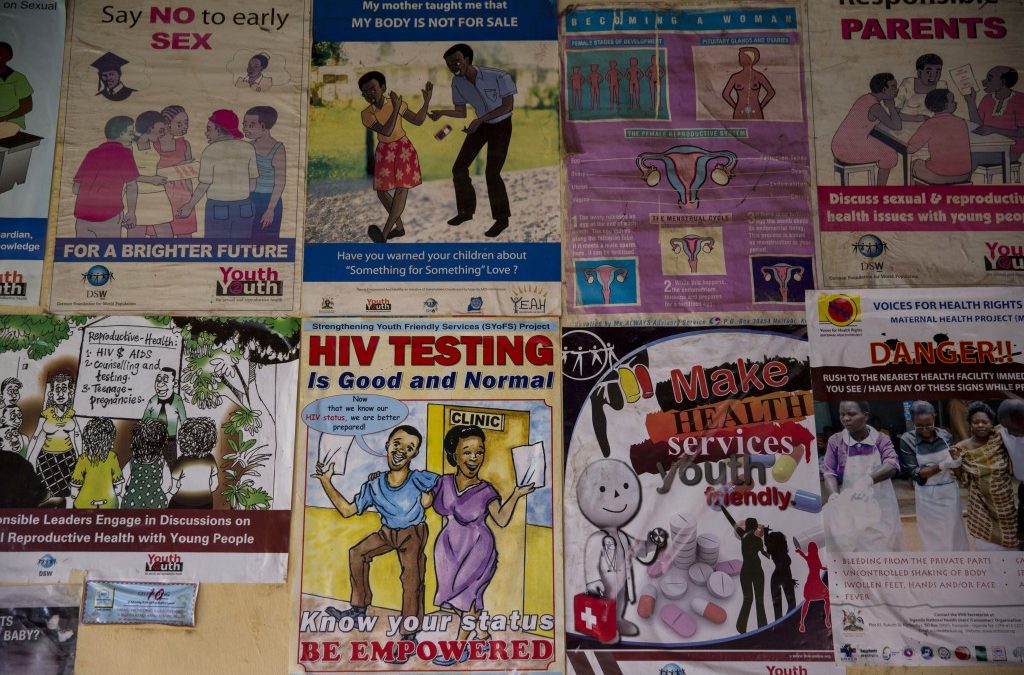 The Population Secretariat, through the Ministry of Finance, Planning and Economic Development, launched the Ugandan National Advocacy Strategy at Imperial Royale Hotel, Kampala on Friday, February 27th. DSW as a key stakeholder and strategic advocacy partner was invited to attend this ceremony.
The Population Secretariat, through the Ministry of Finance, Planning and Economic Development, launched the Ugandan National Advocacy Strategy at Imperial Royale Hotel, Kampala on Friday, February 27th. DSW as a key stakeholder and strategic advocacy partner was invited to attend this ceremony.
Ugandan National Advocacy Strategy
The Ugandan National Advocacy Strategy, under the theme “Towards a Quality Population 2013- 2022″, was set up to foster a systematic and harmonious approach to the design, implementation, coordination, monitoring and evaluation of advocacy initiatives by providing a common frame of reference and guidelines to multiple stakeholders: including government bodies, NGOs, media, cultural and faith-based institutions, the private sector and other  relevant agencies. This strategy advocates for increased funding and uptake of reproductive health services, practical skills-oriented education for young people to address growing unemployment; policies and programmes to empower women to freely utilize reproductive health services and male involvement in reproductive health (RH).
relevant agencies. This strategy advocates for increased funding and uptake of reproductive health services, practical skills-oriented education for young people to address growing unemployment; policies and programmes to empower women to freely utilize reproductive health services and male involvement in reproductive health (RH).
The strategy also notes some policy gaps, including; the absence of functional family planning or reproductive health policy (in Uganda there is no policy that guides key aspects related to RH commodities in order to ease their availability), low government funding, existing policies on abortion. Also noted was the issue that reproductive health and family planning is still viewed as a female issue and that adolescent sexual reproductive policy (2004) has not been revised and is not comprehensive enough to address the RH needs of young people in Uganda.
Ugandan National Advocacy Strategy – what is in it?
The strategy will address:
inadequate prioritization and budget allocation to reproductive health and child health,
inadequate uptake for RH commodities and services by women, men and communities,
limited access to reproductive services by young people
Inadequate behavior change and information education and communication (IEC) interventions especially in rural areas.
As DSW Uganda, we congratulate the Population Secretariat and Ministry of Finance for launching this strategy. This is an important and milestone document which will strengthen the work that we have done over the years to prioritize and promote reproductive health.
Through our projects at DSW, we are already addressing some of these policy gaps in Uganda: for example, under our Euroleverage project were we support family planning champions (Members of Parliament) to increase participation in budget and policy making processes. We support family planning policy and budget research and analysis and prepare publications and presentations. Under our Youth-to-Youth initiative we empower young people to improve their sexual and reproductive health and rights (SRHR) as well as their socio-economic situation. Youth Empowerment Services aims at increasing the number of youth (age 15-30 years) involvement in governance and decision-making processes so that young people are able to demand for services required in their communities.
our Euroleverage project were we support family planning champions (Members of Parliament) to increase participation in budget and policy making processes. We support family planning policy and budget research and analysis and prepare publications and presentations. Under our Youth-to-Youth initiative we empower young people to improve their sexual and reproductive health and rights (SRHR) as well as their socio-economic situation. Youth Empowerment Services aims at increasing the number of youth (age 15-30 years) involvement in governance and decision-making processes so that young people are able to demand for services required in their communities.
DSW’s impact in 2014
Last year in 2014, DSW supported:
Youth clubs made a total of 5,966 referrals. Over 3,000 of these were females,
45 cartons of condoms were distributed in 2014, including two cartons of female condoms.
Data extracted from the DSW database shows that almost 25,000 people were reached with SRHR information. 12,900 were young people (10-24yrs), 2,536 (25-30yrs), and 3,762 were 31 and above.
Photos: Jonathan Torgovnik/Reportage by Getty Images

